Love, Scott
Laura Marie Wayne
2018
| 75 min
Selections and Awards
Best Feature DocumentaryNorth Carolina Gay & Lesbian Film Festival 2018
Special MentionGAZE International LGBT Film Festival 2018
Jury PrizeInside Out 2018
Official SelectionHot Docs 2018
Official SelectionBFI Flare 2018
Official SelectionFIN Atlantic International Film Festival 2018
Jury Prize for Best Documentary Film Llamale H Uruguay - Uruguay International LGBTQ Film Festival
Best Director (Documentary Film) LesGaiCineMad - Madrid International LGBTI Film Festival
While walking on the street one night in a small town in Canada, Scott Jones, a gay musician, is attacked and paralyzed from the waist down; what follows is a brave and fragile journey of healing and the transformation of a young man’s life. From the first raw moments in the hospital to a disquieting trip back to the place he was attacked, Scott is constantly faced with the choice of losing himself in waves of grief or embracing love over fear. Filmed over three years by Scott’s close friend, Love, Scott is an intimate and visually evocative window into queer experience, set against a stunning score by Sigur Rós.
Following the journey of a young gay musician who is attacked and paralyzed from the waist down, Love, Scott is an intimate and visually evocative window into queer experience, set against a stunning score by Sigur Rós.
Long Synopsis
“The wound is the place where the Light enters you.”
– Rumi
In October of 2013, a young gay musician left the bar to walk home, unaware that his life was about to be irrevocably altered. Turning the corner up a street in small town Nova Scotia, Scott Jones was viciously attacked and left paralyzed from the waist down; what follows is a brave and fragile journey of healing and the transformation of a young man’s life.
Accompanying Scott for three years after he was attacked, the film takes us on a poignant and thought-provoking journey as Scott navigates the aftermath of his attack as he learns to move through life in a wheelchair and explores forgiveness for his attacker. Filmed by Scott’s best friend, the documentary offers a rare window into the journey of surviving an attempted murder, all the while offering a profound and much-needed meditation on queer experience.
Throughout his journey, Scott gives voice to the deep wound of not having his attack recognized as a hate crime by the institutions in power. Love, Scott is a film that stands by one man’s experience to illuminate a startling wider phenomenon: the troubling gap between the lived experience of LGBTQ people and the formal public record.
Bringing queer experience to centre stage, the film asks us to consider how much of a voice our society gives to people who have different experiences from the normative culture. With a legal system that is far from perfect, who really decides what “truth” is? What does justice look like when the consequences of violence are irreversible? And how can we begin to address the places where latent homophobia persists in our culture if we can’t name it?
The film is composed of two aesthetic spaces: spacious vérité scenes that reflect the deep trust and long-standing friendship between Scott and the director (Laura), and a second, more introspective space that serves as the cinematic backdrop for an exploration of loss, anger and loneliness. Here, grainy home footage and 16mm visuals become a kind of poetry, illustrating the deep and fragile landscape of Scott’s inner world. This touching depiction is supported by an ethereal score by Sigur Rós, the world-renowned avant-rock band from Iceland.
In vérité sequences, the film follows Scott as a talented musician, watching him shine as he founds a choir for social change and makes music with his devoted sister and companion, Sherise. Determined to choose love over fear, Scott also starts an anti-homophobia campaign called Don’t Be Afraid.
At its heart, Love, Scott is a story of bittersweet transformation—at once about the death of who Scott was and the birth of a new way of being. Bearing witness to this process, Love, Scott is a finely woven cinematic journey, threading together the most poignant moments captured on film over a three-year period and pointing us towards the possibility that indeed, the wound is indeed “the place where the Light enters you.”
Director's Statement
On October 12, 2013, my best friend Scott was attacked. I was living at a remote film school in Cuba, far removed from Canadian news and Internet and any way of knowing this had happened. Almost exactly a year before, Scott had been there with me. He had marvelled at the strangeness of the place I was living in, and together we waited out terrifying electrical storms in my bedroom, climbed the trees lining one of Havana’s busiest boulevards and found ourselves at a crowded café drinking mojitos in the dark when the city’s power went out. Scott was an adventurer, a traveller, and a kindred spirit. When the time came for him to leave and we pulled up to the airport in our ancient, sputtering taxi, I had no idea it would be the last time I would see Scott stand up and walk away.
When Scott was attacked, my mother finally got ahold of me in Cuba and told me through shaky sobs that it was “pretty bad;” Scott’s throat had been slit, his spinal chord had been severed and he was in a hospital in Halifax. What followed next was a tidal wave of shock, rage and finally devastation. I flew to Halifax, terrified, but knowing I needed to be by Scott’s side. I also knew that I needed to bring my camera, even though to film during this time seemed ludicrous. I trekked across Halifax carrying a tripod, camera bag and makeshift microphone, and when I finally arrived in Scott’s room and walked nervously around the curtain of his bed, the first thing Scott said was, “Laura! Did you bring your camera?”
Over the course of the next year, I would hear news of all the remarkable things Scott was doing in spite of his paralysis. He started the Don’t Be Afraid photo campaign that went viral, began speaking at schools across the country, formed a choir for social change and publicly forgave his attacker. Scott’s courage and positivity were widely celebrated in the media, and after naming him one of Atlantic Canada’s most inspiring citizens, the Chronicle Herald wrote that Scott forgave his attacker and “moved on with his life.”
But whenever I would get the chance to speak with Scott directly, I understood another story, one that was private and fragile and coloured as much by anguish as bravery. Scott’s life as he knew it was over; everywhere he turned were echoes of profound and irrevocable loss. And buried deep in the heart of his grieving was the wound of not being heard, of not having the reason he is now in a wheelchair acknowledged in a meaningful way: “so much has been taken from me, and that hasn’t been acknowledged… why.” Scott knew he had been targeted as a gay man but police had either failed to investigate his claim or find evidence to substantiate it; no hate-crime charges were laid and in the court of law, Scott’s sexual identity was invisible.
The impetus for this film lies in a writing of the truth, Scott’s truth. There have been so many versions of this story—the media’s version, the justice system’s version—this film is our version.
Over the past four years, I have been a witness. To pain, to trauma and to unimaginable sorrow; to healing, to resilience and to deep, unconditional love. It has been a privilege to bear witness to Scott’s journey and with this privilege came great responsibility. When I sat next to Scott in the hospital, I made a commitment to listen, to learn and to shine a light on the invisibility of queer experience in the Canadian justice system. Now, four years later, we have a film: a sacred document that is Scott’s testimony, a window into the tremendous journey of this magnificent human heart—a film that calls attention to what matters in this short and fragile lifetime and asks us to remember the little person that lives inside each one of us.
Trailer
Excerpt 1: Choir practice
Excerpt 2: A first return to Park Falls
Promotional Materials
Images
Loading...
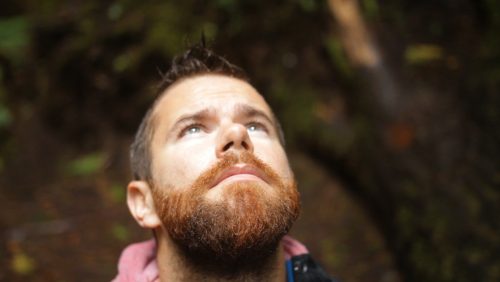
Download
Loading...
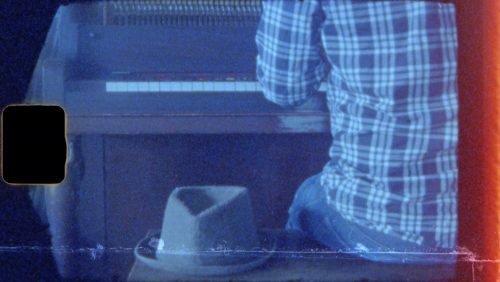
Download
Loading...
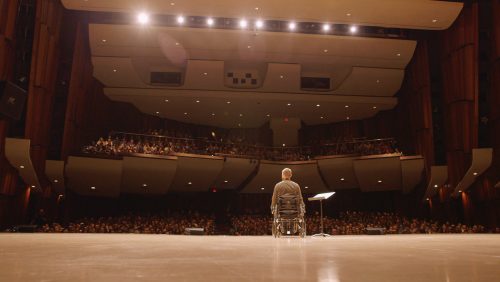
Download
Loading...
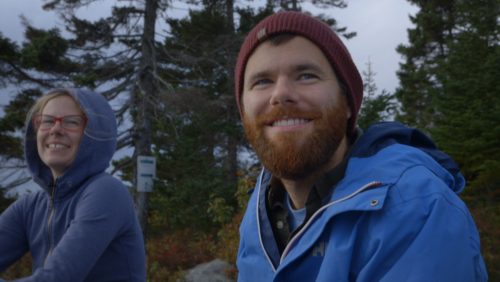
Download
Loading...
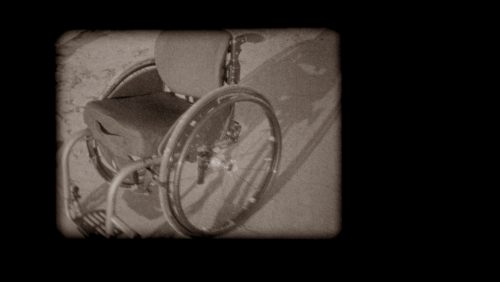
Download
Loading...
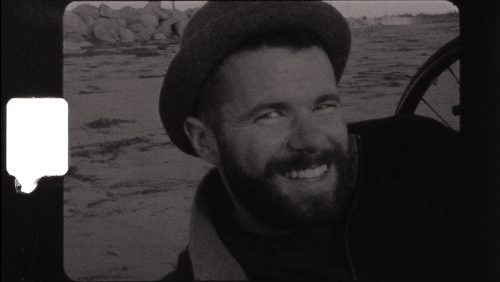
Download
Loading...
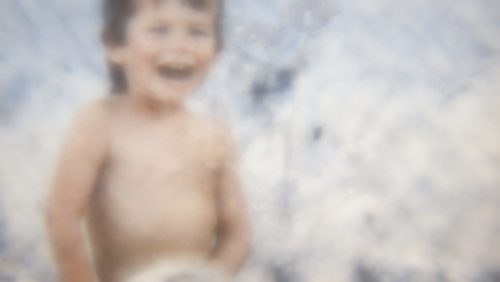
Download
Loading...
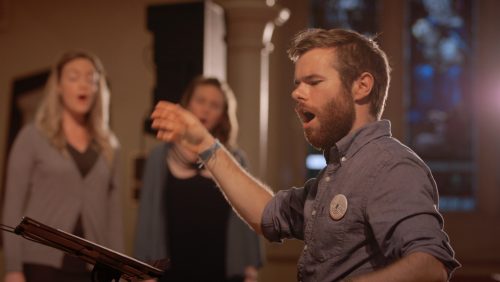
Download
Loading...
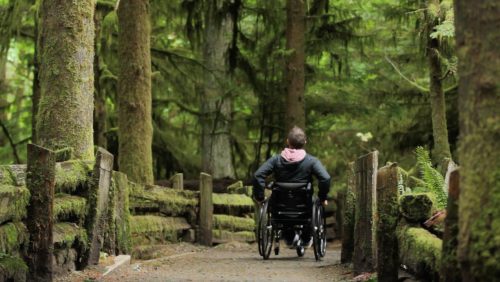
Download
Loading...
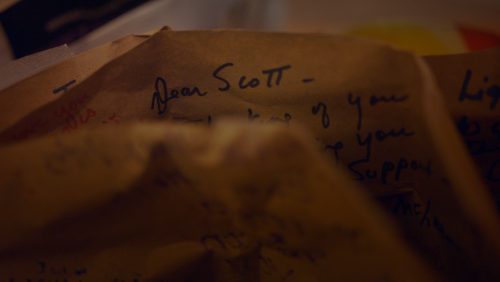
Download
Loading...
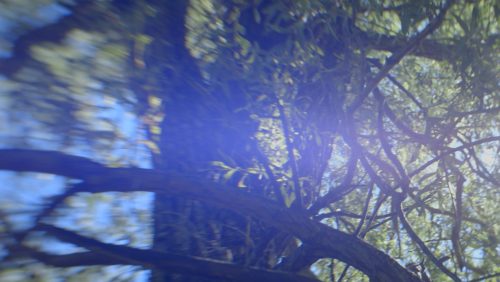
Download
Loading...
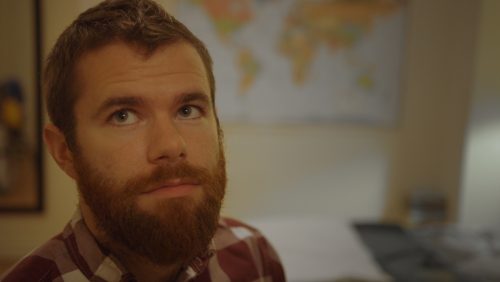
Download
Loading...

Download
Loading...

Download
Loading...

Download
Loading...

Download
Loading...

Download
Loading...

Download
Team
Scott Jones
Musician, educator and activist
Photo
Photo : Tora Chirila
Laura Marie Wayne
Director, writer and cinematographer
Photo
Photo : Linda Kima Zake
Marcos Caraballo
Co-editor
Photo
Photo : Juanjo Cid
Annette Clarke
Producer (NFB)
Photo
Photo : NFB
Credits
Written and Directed by
LAURA MARIE WAYNE
Story Consultant
SCOTT JONES
Edited by
LAURA MARIE WAYNE
MARCOS CARABALLO
Director of Photography
LAURA MARIE WAYNE
Sound Design
MÉLANIE GAUTHIER
Music
SIGUR RÓS
Produced by
ANNETTE CLARKE
Second Camera
RAÚL PRADO
Story Editors
GABRIELLE BRADY
SHANE BORIS
HANNELE HALM
JUSTIN SIMMS
Additional Cinematography
CHRISTOPHER BALL
MARCIA CONNOLLY
ANDREW MacCORMACK
DIEGO MEJIAS
Sound Recordists
KEITH HENDERSON
GASTON SAENZ
ALEX SALTER
LAURA MARIE WAYNE
Stills Photographers
CHARLOTTE MARCHESSEAULT
BENJAMIN MURPHY
Production Assistants
GABRIELLE BRADY
ERIN BELL
SHERISE JONES
CHRISTOPHER SPENCER-LOWE
Narrated By
LAURA MARIE WAYNE
Transcription
LISA CLARKE
LORI HEATH
JENNA ROSS
Foley
ALEXIS FARAND
Foley Recording
GEOFFREY MITCHELL
Narration Recording
LUC LÉGER
Dialogue Editor
Assistant Sound Editor
SANDY PINTEUS
Sigur Rós Music Mix by
SINDRI MÁR SIGFÚSSON
Additional Music
BOTH SIDES NOW
Written by JONI MITCHELL
CRAZY CROW MUSIC (ASCAP)
Administered by SONY/ATV
MUSIC PUBLISHING CANADA (SOCAN)
All rights reserved. Used by permission.
Arranged by V. MENDOZA,
transcribed by K. CORMIER
Performed by VOX: A Choir for Social Change
DON’T BE AFRAID
Written & Composed by ALLYSON REIGH
All rights reserved
Used by permission of ALLYSON REIGH
Performed by SCOTT and SHERISE JONES
ONE MAN GUY
Composed by LOUDON WAINWRIGHT III
All rights reserved
Used by permission of SPIRIT MUSIC GROUP
Performred by SCOTT and SHERISE JONES
THIS WOMAN’S WORK
Written by KATE BUSH
NOBLE & BRITE Ltd. (PRS)
Administered in Canada by
EMI MUSIC PUBLISHING (Canada) Ltd. (SOCAN)
All rights reserved. Used by permission.
Arranged by JEN McMILLAN
Performed by VOX: A Choir for Social Change
Music Clearances
SYLVIA MEZEI
Visual Archives Courtesy of
CBC ARCHIVE SALES
ARCHIVES RADIO-CANADA
CTV ATLANTIC
JOHN and KAREN CONWAY
SCOTT JONES
LOIS WAUGH
A heartfelt thank you to
THE WAUGH JONES FAMILY,
CARA JONES
SHERISE JONES
GABRIELLE CLARISSE WAUGH
LOIS WAUGH
Production Supervisor
ROZ POWER
Technical Coordinators
JEAN-FRANÇOIS LAPRISE
DANIEL LORD
CHRISTOPHER MacINTOSH
Production Coordinators
MYLÈNE AUGUSTIN
SARAH GIGNAC
CHERYL MURGATROYD
Senior Production Coordinator
KELLY DAVIS
Program Administrators
CAMILA BLOS
LESLIE ANNE POYNTZ
Title Design
CYNTHIA OUELLET
Online Editor
SERGE VERRAULT
Re-recording
SERGE BOIVIN
Marketing Manager
CHARLES PEASE
Marketing Coordinator
STÉPHANIE QUEVILLON
Publicist
JENNIFER MAIR
Legal Counsel
DOMINIQUE AUBRY
Executive Producer
ANNETTE CLARKE
Executive Director English Program
MICHELLE VAN BEUKESOM

Media Relations
-
About the NFB
For more than 80 years, the National Film Board of Canada (NFB) has produced, distributed and preserved those stories, which now form a vast audiovisual collection—an important part of our cultural heritage that represents all Canadians.
To tell these stories, the NFB works with filmmakers of all ages and backgrounds, from across the country. It harnesses their creativity to produce relevant and groundbreaking content for curious, engaged and diverse audiences. The NFB also collaborates with industry experts to foster innovation in every aspect of storytelling, from formats to distribution models.
Every year, another 50 or so powerful new animated and documentary films are added to the NFB’s extensive collection of more than 14,000 titles, half of which are available to watch for free on nfb.ca.
Through its mandate, its stature and its productions, the NFB contributes to Canada’s cultural identity and is helping to build the Canada of tomorrow.